Blog
Blog

By KINGDOM DIGITAL
•
October 3, 2023
In an ever-evolving digital landscape, automation has become a cornerstone for businesses seeking to streamline operations, enhance efficiency, and create lasting value for their customers. When this automation is powered by Artificial Intelligence (AI), the possibilities are boundless. Below are some compelling reasons why AI Automation is not just a trend but a necessity for modern businesses. Enhances Productivity One of the most obvious benefits of AI Automation is the significant increase in productivity. With AI algorithms performing repetitive and time-consuming tasks, employees are free to focus on more complex and creative aspects of their work. By automating mundane tasks, businesses can allocate resources more effectively, thereby improving overall productivity. Cost-Effectiveness While implementing AI-powered solutions may require an initial investment, the long-term savings are substantial. Through automation, tasks that would normally take hours can be completed in a fraction of the time, reducing labor costs and increasing profitability. Data-Driven Decisions AI algorithms are excellent at analyzing large sets of data. They can identify trends, forecast outcomes, and provide valuable insights that humans might overlook. By incorporating these data-driven insights into decision-making processes, businesses can optimize strategies for better results. Customer Experience In today’s competitive market, customer experience is paramount. AI Automation can personalize customer interactions, process queries more efficiently, and provide more accurate information, thereby enhancing the overall customer experience. Automated chatbots, for instance, can handle customer service inquiries 24/7, offering immediate responses and freeing up human agents for more complex issues. Competitive Edge As technology continues to evolve, staying ahead of the curve is crucial for business sustainability. Companies that invest in AI Automation are better positioned to adapt to changing market conditions and customer expectations. This agility provides a distinct competitive advantage, making it easier to navigate challenges and seize opportunities. Scalability One of the most appealing aspects of AI Automation is its scalability. Whether you're a small business or a multinational corporation, AI-powered solutions can be tailored to meet your specific needs. As your business grows, your automated systems can easily be adjusted to handle increased workloads. Conclusion The integration of AI Automation into business operations is no longer an option—it's a necessity. By embracing this transformative technology, businesses can enjoy increased productivity, cost-efficiency, and a competitive edge that will serve them well into the future. In a world where innovation is king, AI Automation is the queen that rules the empire. Take the first step toward future-proofing your business by exploring the AI Automation services we offer here at Kingdom Digital.

By KINGDOM DIGITAL
•
September 24, 2023
Artificial Intelligence, or AI, has become a buzzword in the tech industry and beyond. But what exactly is AI, and how does it work? In this post, we'll explore the fundamentals of AI and its various applications in today's world. Understanding Artificial Intelligence At its core, AI refers to the development of computer systems that can perform tasks that typically require human intelligence. These tasks include problem-solving, decision-making, language understanding, and more. AI systems can process vast amounts of data, recognize patterns, and make predictions or recommendations based on that data. Types of AI There are two primary types of AI: Narrow AI (or Weak AI) and General AI (or Strong AI). Narrow AI: Narrow AI systems are designed for specific tasks. These AI systems excel in their predefined domains, such as virtual assistants like Siri or Alexa, recommendation algorithms on streaming platforms, or autonomous vehicles. General AI: General AI is a more advanced form of AI that possesses human-like intelligence and can perform a wide range of tasks. General AI is still a theoretical concept and has not been fully realized. AI Technologies AI relies on several core technologies, including: Machine Learning: This subset of AI focuses on developing algorithms that allow computers to learn from data. Machine learning is widely used in tasks like image recognition, natural language processing, and predictive analytics. Deep Learning: Deep learning is a subfield of machine learning that employs artificial neural networks inspired by the human brain. It has revolutionized tasks like image and speech recognition, as well as language translation. Natural Language Processing (NLP): NLP enables computers to understand, interpret, and generate human language. It's used in chatbots, language translation services, and sentiment analysis. Computer Vision: Computer vision involves teaching computers to interpret and understand visual information from the world, making it crucial in applications like autonomous vehicles and medical image analysis. AI Applications AI has a wide range of applications across various industries: Healthcare: AI is used for disease diagnosis, drug discovery, and personalized treatment plans. Finance: In finance, AI is employed for fraud detection, algorithmic trading, and customer service through chatbots. Retail: AI powers recommendation engines, inventory management, and customer analytics for personalized shopping experiences. Manufacturing: Manufacturers use AI for predictive maintenance, quality control, and process optimization. Transportation: Autonomous vehicles and route optimization systems are examples of AI applications in transportation. Entertainment: AI algorithms recommend movies, music, and books based on user preferences. The Future of AI AI is an ever-evolving field with boundless potential. As AI technologies continue to advance, we can expect to see even more transformative applications across industries, enhancing our daily lives and reshaping the way we work and interact with technology. In conclusion, AI is a fascinating field that holds the promise of revolutionizing our world. From self-driving cars to medical breakthroughs, AI is already making a significant impact on society, and its future potential is truly exciting. Stay tuned for more insights into the world of AI right here on our blog.

Based in Orlando - FL - USA
Available worldwide online
🇺🇸 🇧🇷
